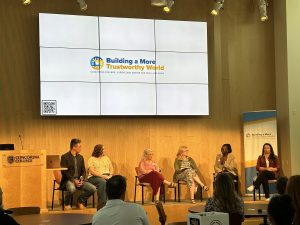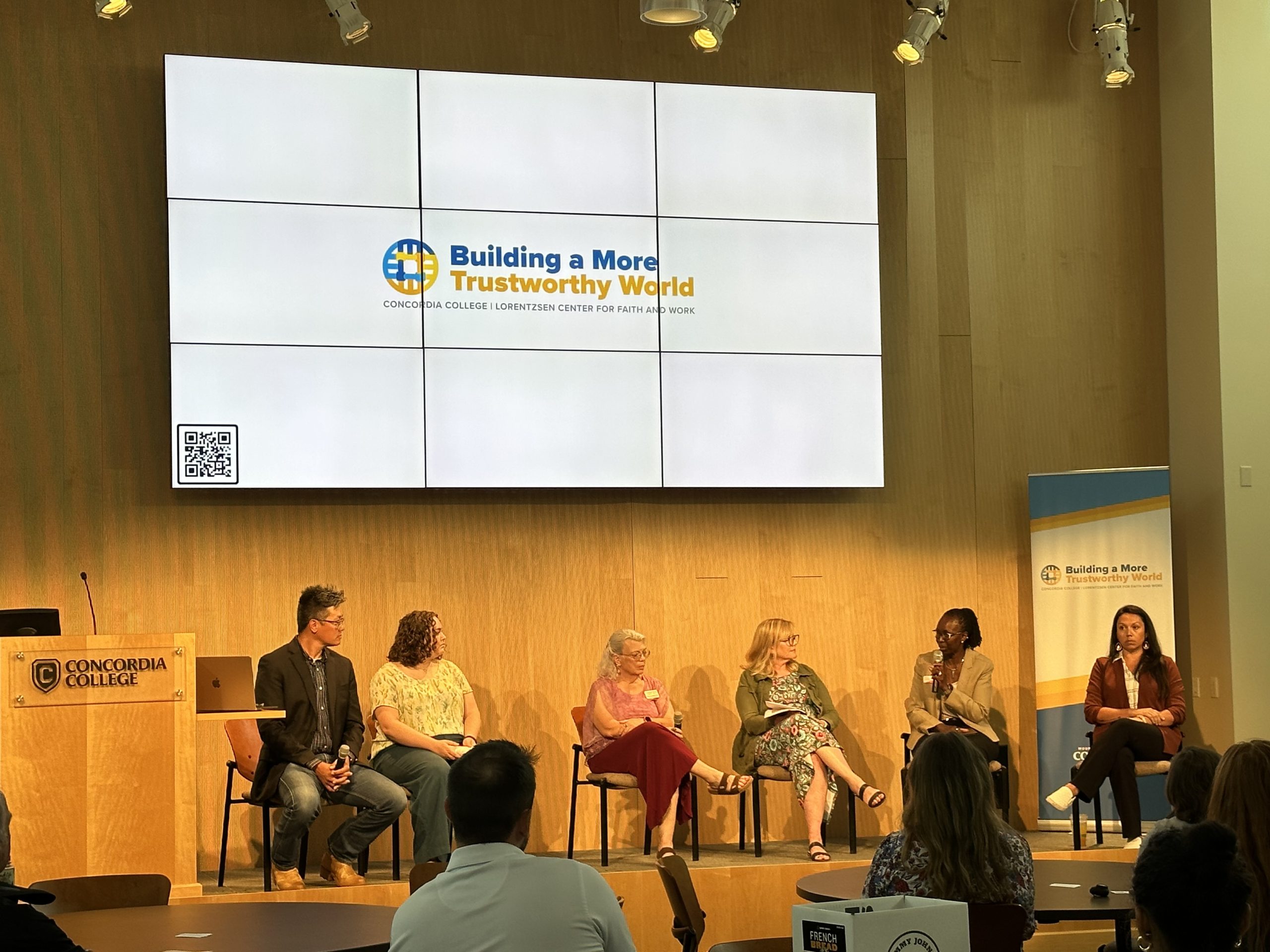MOORHEAD – The Lorentzsen Center for faith and work hosted a panel to discuss housing in the Fargo-Moorhead area on Wednesday, Aug. 30.
The panel was part of an event series hosted by Dr. Michael Chan, executive director for faith and learning.
The panel featured executive director of the Jeremiah Program, Laetita Mizero-Hellerud, goverment affairs director for the city of Moorhead, Lisa Bode, chief executive officer of Churches United, Pastor Sue Koesterman, and Rep. Heather Keeler of District 4A
In a July 2023 analysis of regional housing needs, five main goals were identified, including helping current residents stay and grow in the area and accommodating new population and job growth by supporting more housing choice.
“The challenge is being honest about things, we need to have hard conversations and be honest about the data in our community,” Rep. Keeler said.
The panelists started off the event by discussing why housing is such an important topic for the Fargo-Moorhead area.

“Housing is foundational,” Mizero-Hellerud said. “Shelter is as important as air, food, or water.”
Some of the main discussion points were rising costs and how to address the problem holistically.
“The proportion of a person’s income going toward housing keeps rising,” Bode said.
Another trend the panelists have noticed in their work the impact of feeling isolated. “People are lacking support beyond themselves.” said Koesterman, “There have to be robust supports in place for both attaining and maintaining housing.”
Putting money toward community resources only works if people utilize those resources. “(To do that) we have to eliminate the judgment. There is a moral failing attached to poverty,” Koesterman said.
Rep. Keeler stressed the importance of addressing housing holistically. Panelists focused on approaching the issue from multiple angles.
The panelists mentioned a variety of challenges, from substance abuse and mental health struggles to a lack of childcare or education. These are some of the many barriers that can prevent people from accessing housing.
“Affordability is the biggest barrier to home ownership,” Bode said.
Issues persist in regards to low-income apartments and renting as well.
In the last decade, the Fargo-Moorhead community has added almost 23,000 new jobs, and the population has increased by about 18%, but the areas housing supply lags behind the changing demand.
Because of this, applications for low-income housing units are highly competitive.
On a day to day basis, a majority of the adults in shelters work close to full time, between either multiple part-time jobs or day laboring, Kosterman said. She continued by saying that these types of work are not always consistent and therefore do not look favorable on rental applications.
The panel concluded with a look toward the future. The Fargo-Moorhead community already has many organizations working to combat housing disparities, such as the Jeremiah Project, Habitat for Humanity, and the FM Coalition to End Homelessness.
When it comes to addressing this complex issue, it begins with compassion and moving from conversations to actions and making sure we bring everyone to the table, Mizero-Hellerud said.

